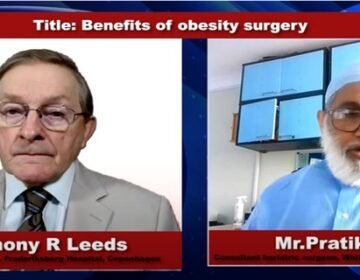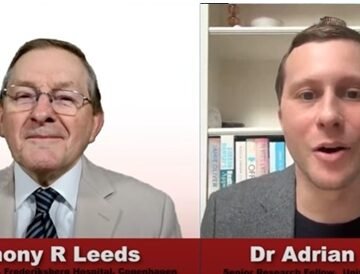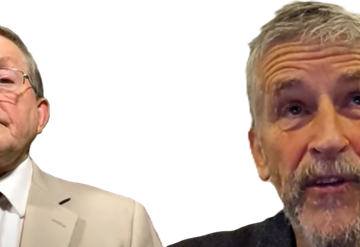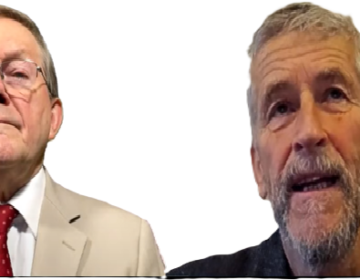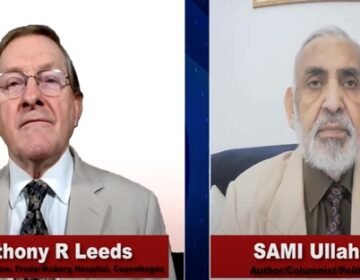Diabetes Remission is possible
Dr Leeds in conversation with Sami Ullah Malik
https://www.youtube.com/watch?v=wOo58BGoigU
In the final conversation in this series Sami Malik asked Dr Leeds what were the key messages, within the preceding nine episodes. The most important, Leeds said, was that Diabetes remission is possible and this should be made available in countries like Pakistan where it is most needed. He added that other key messages included the problem that many people don’t recognise obesity as a disease, and that other obesity related conditions such as obstructive sleep apnoea, osteoarthritis and cardiovascular risk factors can respond well to weight losses of 10kg or so (about 10% body weight). One correspondent had asked how we can offer diabetes remission in countries where a section of the population is relatively poor and cannot afford medicines or special diets. Dr Leeds noted that his colleagues in Glasgow, notably Professor Mike Lean, recognised this as a problem and suggested going back to the use of traditional foods. The Glasgow team collaborates with colleagues in Nepal to use traditional low glycaemic index (low-GI) foods given in carefully controlled portions to try to achieve diabetes remission. Another correspondent asked how is it possible to control the consumption of ‘unhealthy foods’ and Leeds commented, by way of example, that Mexico had introduced a sugar tax on sugar in beverages and this had resulted in reduced consumption of those products. A third correspondent asked how we can urge governments to take significant steps to better combat diabetes and Leeds replied that it was essential to educate health care professionals, key opinion formers and government officials about the scientific evidence for diabetes remission. National and international guidelines also needed to describe the evidence and make recommendations. Asked what is the next most important condition that can be addressed by weight loss and Leeds replied that obstructive sleep apnoea that affects many people in South Asia, and in Pakistan particularly can be improved by weight loss of the order of 10 – 15kg (this was discussed in episode 9). It was noted that awareness about diabetes is increasing in low and middle income countries but resources to address the problem are lacking. Asked if his experience of working in Malaysia had given any clues about how to address this problem Leeds replied that any treatment offered especially if it was a diet and lifestyle programme had to be culturally appropriate and be modified for national and local conditions. Asked about why education is so important Leeds said that he thought health care professionals tend not to change their practice unless the new ways are supported in guidelines and he added that generally people don’t like to make changes to their practice so education of professionals and key opinion formers is essential. Concluding the discussion Sami Malik thanked Dr Leeds for recruiting and interviewing the guests and for writing the accompanying text material.
Web-links to useful sources of information are given below.
—ooOOoo—
Diabetes remission:
Research Spotlight Low Calorie Liquid Diet
—ooOOoo—
Diabetes prevention:
The Canadian Diabetes Risk calculator:
The Indian Diabetes risk score:
UK Type 2 diabetes – know your risk
—ooOOoo—

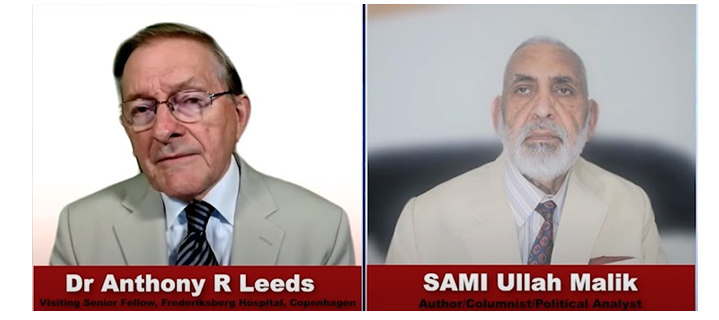

![Long term benefits of obesity surgery [part 2] Mr Pratik Sufi](https://bittertruth.uk/wp-content/uploads/2025/06/sufi-360x280.jpg)





